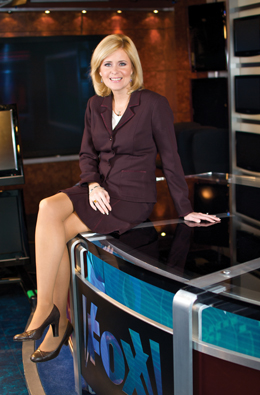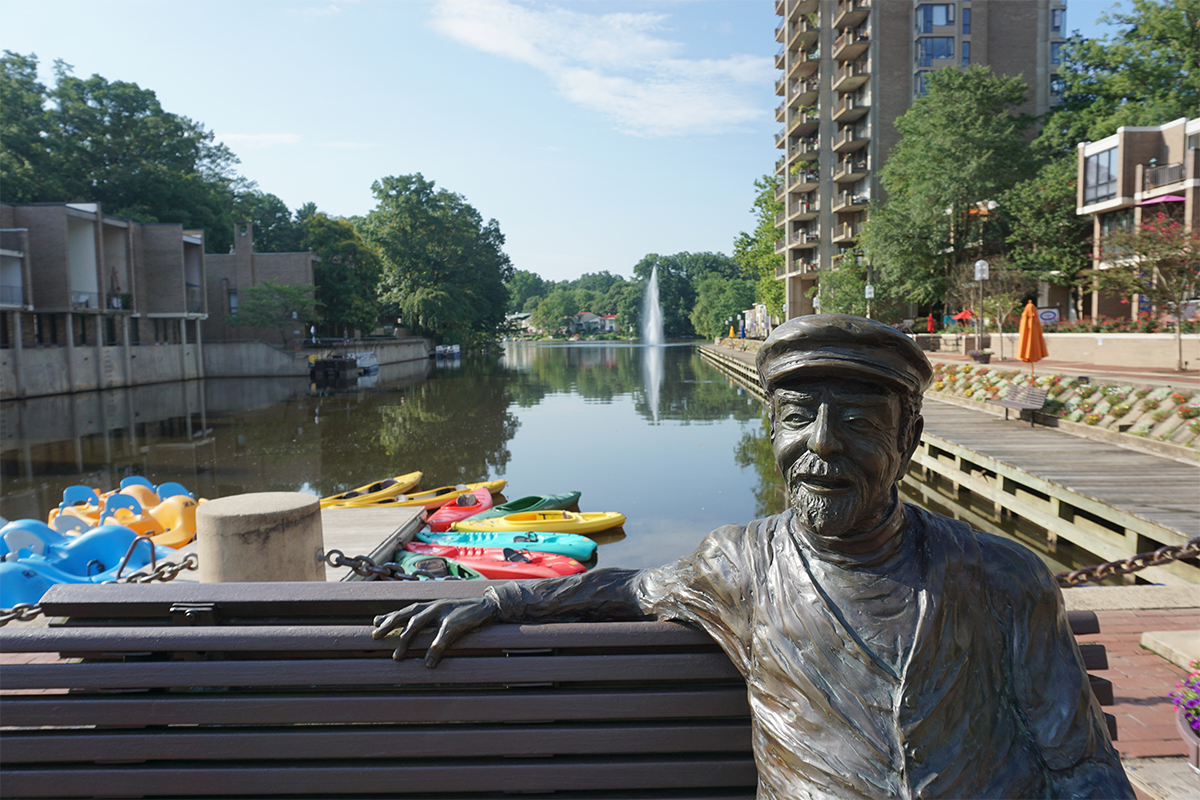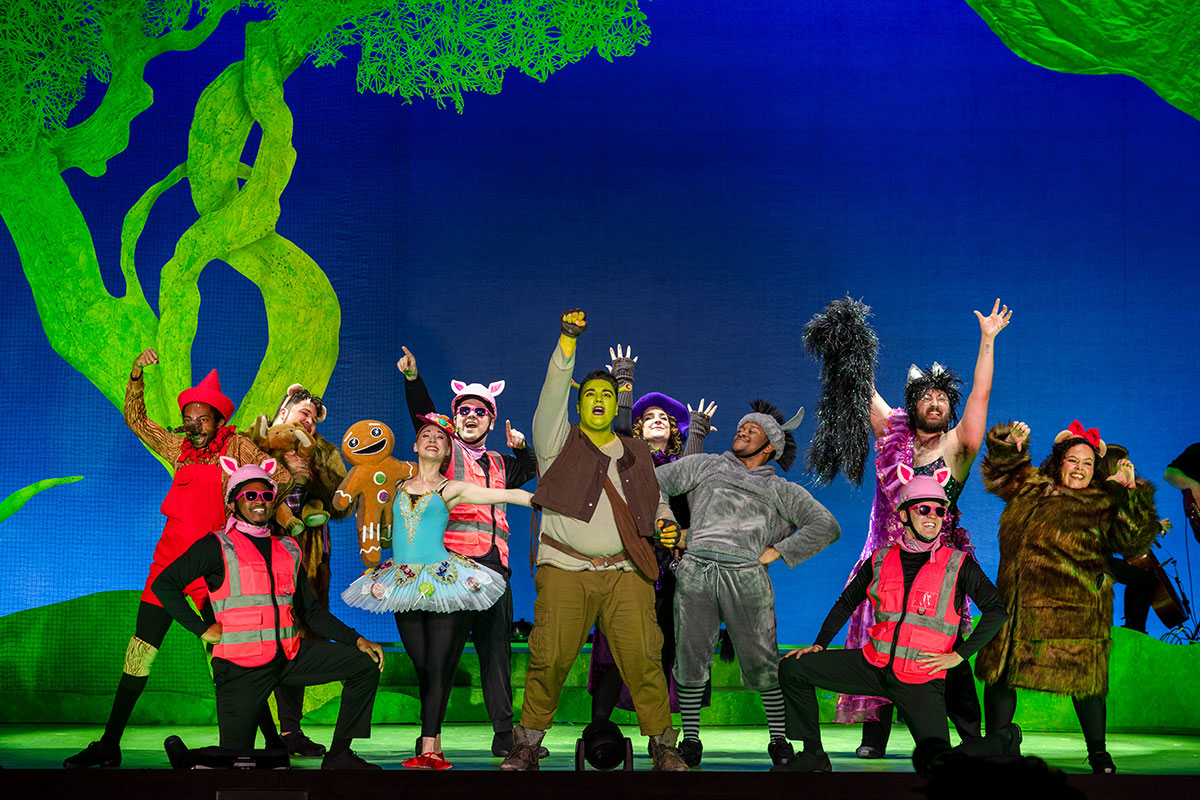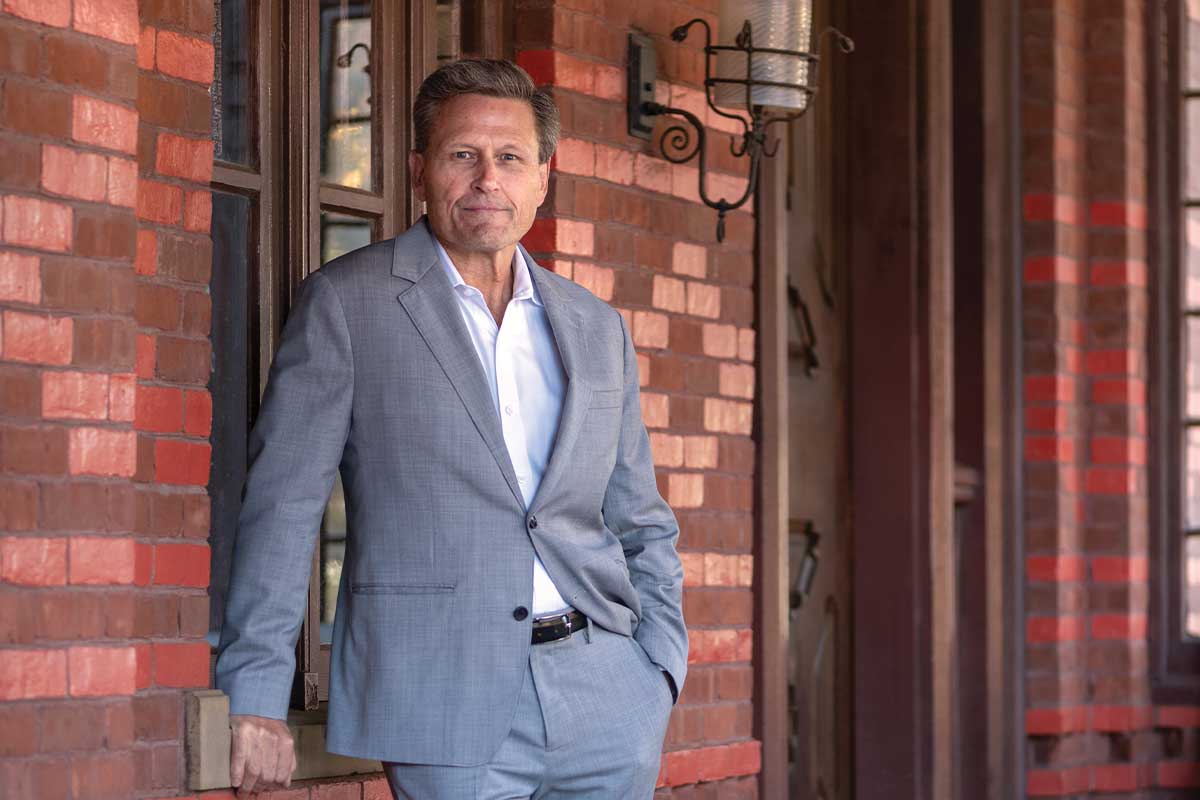Molly Henneberg, a journalist and proud wife of a Marine, does something she’d never do on camera—talks about her husband’s tour in Afghanistan, and the art of fair reporting
By Taylor Harris

ox News correspondent and Northern Virginia resident Molly Henneberg is accustomed to the lights, the cameras, the rush of news coming in over the wires. She is familiar with tough deadlines and understands that time waits for no journalist. She even knows how to pack up her life and chase a story all the way to Iraq or Afghanistan. But a successful career in journalism has not prepared Henneberg for one of her toughest assignments yet: reporting on a war in which her husband is serving.
Henneberg’s job, like that of any journalist, is to share the facts—but never of her own life. So no cameras or microphones captured her first wedding anniversary in July 2009, which she spent alone. No one wrote the article headlined, “Wife receives flowers from Kabul,” but that was, in fact, the news of the day for Henneberg, wife of Marine Capt. Chris Nagel. Having reported from Afghanistan in 2004, she was left to imagine what her husband might be experiencing in his first deployment and to pray for his safe return.
Northern Virginia Magazine asked the Fox News national reporter to talk about her personal connection to the war, her professional role as a journalist and how the two, if ever, intersect.
What is the hardest part of reporting while your husband is serving in Afghanistan?
I have been reporting on the War on Terror, either from D.C. or from the actual theater in Iraq or Afghanistan, basically since Sept. 11 happened, and I always had a great deal of appreciation and compassion for military families. But once Chris deployed, I felt it in a different way. Now every time I hear a story about Afghanistan, especially when you hear that soldiers have been killed, I ache inside for that family differently than I ever have. I always felt bad for them, but now I ache in a way that they’re getting the worst news of their lives, and I feel that.
How did you choose a career in journalism?
I love news. I love politics. I love what’s going on in the world and learning about it and talking to the newsmakers and sharing whatever I’ve learned throughout the day with viewers. I’ve loved it from day one. It’s not a job for me to go into work. I go skipping into work every day. I love this job. I honestly do. It’s exciting. It’s varied. It’s interesting. It’s something different every day. I absolutely love it, and thank goodness for that because it’s really helped me through this deployment.
Do you think it’s possible for a journalist to be unbiased?
I think everybody as a person has their own opinions and thoughts about issues and biases, and I think it’s important to recognize where you come from, what’s influenced you and how your thought processes might go. But for me, it’s not that difficult to let newsmakers give their opinions. It doesn’t have anything to do with me or my opinion. That’s not really my job, and I don’t want that to be my job.
What rules of integrity do you live by as a journalist?
To be fair, to be accurate, to be concise and to take myself out of it. It has nothing to do with me.
How do you separate your personal connection to the war from your professional reporting?
I’m much more in tune with stories coming out of Afghanistan on a personal basis, because I want to know what’s going on in the country where Chris is, especially if anything happens in Kabul. At one point, his base was bombed. He called me right away and said that he was OK, and then he was out helping the injured. So I pay attention to things like that. But we have a job to do. You just do it. You go in to work, and you do it.
How do you feel about the perception that Fox News has a right-wing bias?
My guess is that they hear some of the opinions of people who are paid to work at Fox and give their opinion—left or right, but I don’t think the news is slanted one way or the other. I think we do a pretty good job of getting both sides and letting our viewers determine where they fall one way or the other.
Does the perception affect the way you prepare for your stories or conduct your interviews?
No, the news is just so separated from the opinion people at Fox. If there’s a news topic of the day, you ask the questions that pertain to that news topic. You ask people on Capitol Hill whether they’re Republican or Democrat. I think I’ve done my job the same way all the way through my career, and it’s to be fair and to be accurate and to ask the questions that viewers at home are wondering about to try to get the news of the day out.
Have you seen any change in ethics in journalism since you began your career as a reporter?
I think I’ve worked with some really excellent journalists in small markets, medium markets and now at the cable network level. I love the people who are attracted to this business. I think they’re passionate and creative and smart and well-educated and have families and are great people. So, no, I haven’t really seen a change in ethics. I think it’s a pretty great business to be in.
How do you think citizen journalism (e.g. i-reporting, blogging) has changed the face of media?
I love it. I think it’s so exciting. … A lot of the iconic images have come from people just snapping pictures of what they see. I think it’s opened the door to capturing a lot of history, and people who are there right at a time when maybe a TV camera isn’t can get us pictures and information.
Should citizen journalists be held to the same standards of integrity that you hold yourself to?
When we [at Fox] get “uReport” pictures from cell phones or people’s pictures that they email to us, I think we’re very careful to identify the source. And then, again, it lets viewers at home decide what they think about that source and how seriously they’re going to take it.
How do you think the art of reporting will change over the next decade?
The only thing I’m pretty sure of is that more and more people will be getting involved. It used to be the elite three—ABC, CBS, NBC. They were the news from “on high.” Then cable news kind of elbowed in and got a place for ourselves, and then it just keeps expanding and expanding, and more and more people keep getting a seat at the table to discuss issues and news and what they’ve seen, and I’m excited about that.
How has your perspective on war changed since your husband’s deployment?
I feel more of a kinship with families of soldiers overseas now. I understand their struggle. I understand what it’s like when you’re used to having your helpmate in life and your companion in life, and it’s taken away from you. You don’t see him every day. You don’t exactly know what his situation is moment to moment. You can’t pick up the phone and call him if something goes wrong or goes right or if you need help.
What did you learn during your time in Afghanistan in 2004?
I wasn’t in Kabul for very long when I went to Afghanistan in 2004, but I saw a little bit. I’m glad I have a little bit of a visual image of what he may be seeing and experiencing just on a personal level. I only know one iota of what he’s going through, but I have been there, so I can relate a little bit to what he’s seeing and what it’s like.
Does that mental image of Kabul make you nervous or give you a sense of peace?
I think whether or not I’d been there, I’d have the same level of anxiety about him.
Would you consider returning to Iraq or Afghanistan now as a reporter?
Absolutely. It would be interesting to go now. For the most part, networks are cutting back a lot of their resources in those countries, but I would definitely be interested in going back and comparing it to my experiences to see what it looks like and what the situation is.
(January 2010)




